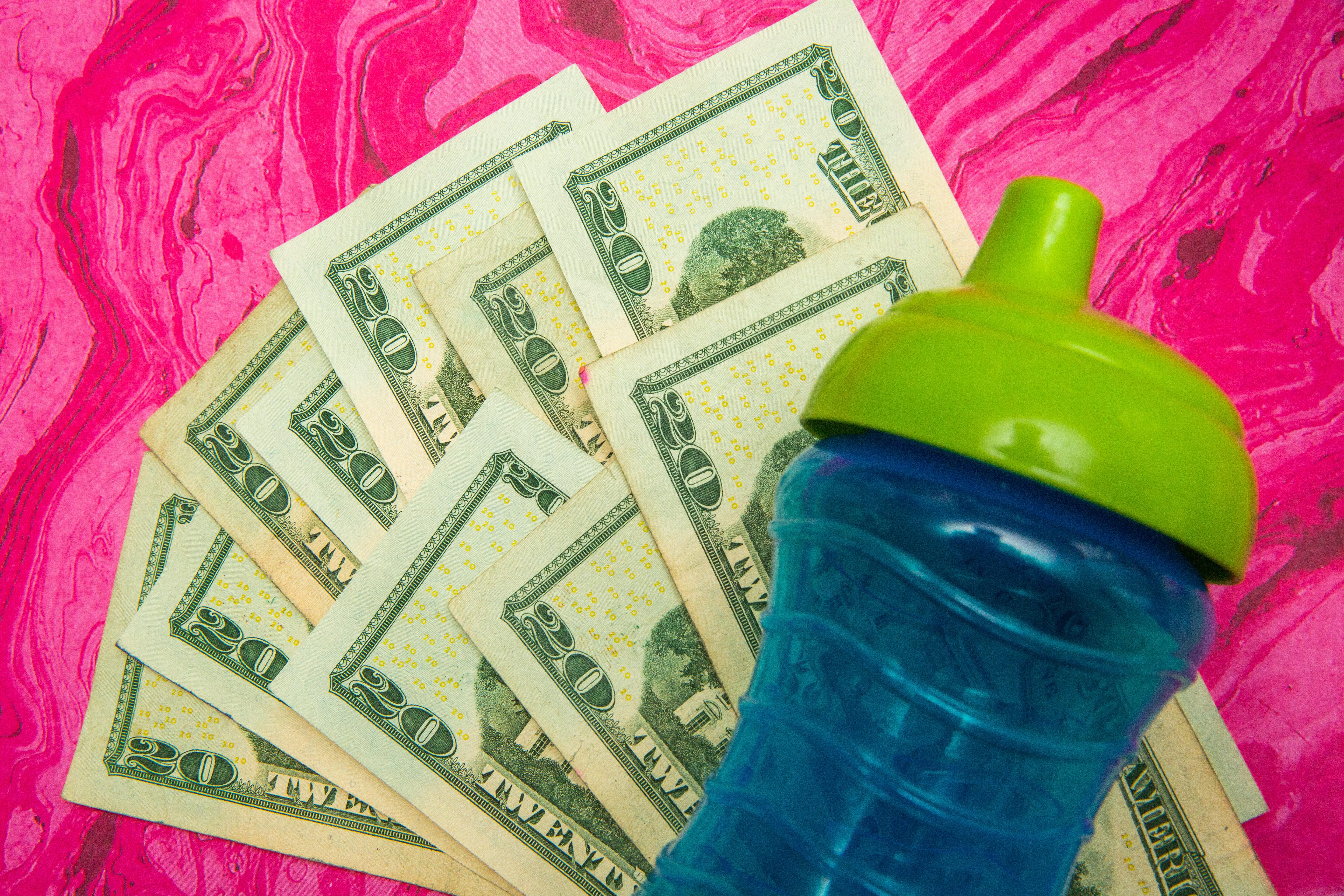
Monthly child tax credit payments for as much as $300 are expected to start in July.
Sarah Tew/CNETif you’ve worked your way through the often-confusing details around your taxes this year and all three stimulus checks you’re ready to take on the even more complicated fine print of the 2021 expanded child tax credit. Families who qualify for the child tax credit will get up to $500, $3,000 or $3,600 per child in a total of seven payments, starting in July. But it doesn’t come without thorny rules.
For instance, of your total payment, you’ll only get half this year. You’ll claim the rest when you file taxes in 2022. Plus, adults have to meet specific adjusted gross income restrictions and your dependents have eligibility requirements of their own. And if you’ve got older kids, 2021 babies or you share custody with your child’s other parent, you’ll want to update yourself on the details.
We’ll explain how the child tax credit payment schedule will work, what you’ll need to do if you get too much money and how to correct errors using the IRS portal. If you’re still waiting for your $1,400 stimulus check to arrive, you can track your payment here. We also recommend taking two minutes to see if your state owes you money. This story is regularly updated.
Basics of the child tax credit requirements and income limits
Payments will be split, with half in 2021 and the rest in 2022. For each qualifying child age 5 and younger, that means up to $1,800 will come in $300 monthly payments this year. For each child between the ages of 6 and 17, up to $1,500 will come as $250 monthly payments six times in 2021. For both age groups, the rest of the payment will come with your 2021 tax refund, when you claim the remainder of the tax credit in 2022. Here’s how to calculate your family’s total child tax credit amount, including a monthly breakdown.
Qualifying dependents between ages 18 and 24 count toward a one-time $500 payment.
2021 child tax credit amount
| Ages 5 and younger | Up to $3,600, with half as $300 monthly payments |
|---|---|
| Ages 6 to 17 | Up to $3,000, with half as $250 monthly payments |
| Age 18 | $500 one-time check |
| Ages 19 and 24, full-time college students | $500 one-time check |
Note that the amount you’ll get phased out for people with higher incomes. Singles earning more than $75,000 per year, heads of household earning more than $112,500 per year and married couples earning more than $150,000 a year. Your child tax credit payments will begin to phase out by $50 for every $1,000 of income over those threshold amounts, according to Joanna Powell, managing director and certified financial planner at CBIZ.
Here’s more on the financial breakdown for qualified dependents. Remember, CNET’s child tax credit calculator will help pinpoint how much to expect each month.
Child tax credit payment schedule: Everything we know
We know the child tax credit payments will begin arriving in July, but the IRS hasn’t announced a specific date. We don’t know if the payments will be released in batches or all at once, or if they’ll come earlier in the month or later.
What we do know is that the checks are on track to arrive monthly through December. Here’s a breakdown of what to expect. We’ll update this chart when we learn more about the payment delivery dates.
Timeline for the child tax credit payments
| Monthly | Payment ages 5 and younger | Payment ages 6 to 17 |
|---|---|---|
| July 2021: First payment of the year | $300 | $250 |
| August 2021 | $300 | $250 |
| September 2021 | $300 | $250 |
| October 2021 | $300 | $250 |
| November 2021 | $300 | $250 |
| December 2021: Last payment of the year | $300 | $250 |
| April 2022: Second half of payment | $1,800 | $1,500 |
2021 babies count towards the child tax credit
If you have a baby in 2021, your newborn will count toward the child tax credit payment of $3,600, if you and they qualify. Children who are adopted can also qualify if they’re US citizens.
What are the rules for older dependents?
As for your older dependents, if they’re between the ages of 18 and 24 they can qualify for $500 each — but note that if your kids are between the ages of 19 and 24, they must be enrolled in college full-time.
How the expanded child tax credit compares to the 2020 version
The first thing to know is you won’t get your child tax credit payments all at once this year. The “credit” part means the amount you owe in your 2021 taxes will be reduced by the “credit” you gain from your eligible dependents. That could either reduce your payment to the IRS for your 2021 taxes (filed in 2022) or else increase your tax refund for 2021. Normally, you’d receive that “credit” as a tax refund in 2022. But the plan is to bring you money sooner, which is why the checks will start coming in 2021 as “advance payments.”
This logic also explains why your 2021 child tax credit is split into two parts. The first part, in 2021, is the advance payment you can start using right away. The second part will apply to your 2021 taxes — which you file in 2022. Yes, it’s confusing. Hopefully, we answer some of your questions below.
How the IRS might send your child tax credit money
The way your child tax credit money arrives could very well depend on how you receive your stimulus check money, Powell told CNET. The IRS has changed this in the past, so we’ll need to hear official guidance from the agency.
For example, if you got all three stimulus checks via direct deposit, it’s quite possible your child tax credit could arrive that way, too. If you receive Social Security benefits like SSI or SSDI, it’s possible you might get your payment on a Direct Express card. Veterans who don’t normally pay taxes might also have a different delivery method.
Paper checks and EIP debit cards are other delivery methods used for stimulus checks. We’ll keep our ear to the ground for emerging details and will provide updates as we learn more.
Significant details for parents who share custody of a child
For the first two stimulus checks, some parents who shared custody of a child but weren’t married to each other were entitled to each claim money for the same child. That was only if they alternated years for claiming the dependent — in other words, if one parent claimed the child on their taxes in odd years and the other claimed the child on their taxes in even years.
This is no longer allowed for the third check, and we’re told it won’t work that way for the child tax credit payments either. Here’s what we know so far about the child tax credit and shared custody situations.
Your 2020 tax return affects the child tax credit total you’ll get
Taxpayers shouldn’t file an amended return related to the new legislation and shouldn’t take any other “unnecessary steps,” the IRS said March 12. IRS Commissioner Charles Rettig said payments will be automatic for those who file their 2020 tax returns by May 17, the new tax deadline.
However, nonfilers will need to file a 2020 tax return to get the credit, even if they don’t usually submit tax returns. This will let the IRS know how many dependents are in the household who count toward the child tax credit benefits.
The IRS child tax credit portal will be key for many
The IRS will launch an online portal by July 1, Rettig said, but the IRS won’t have the resources to build this until after tax filing season ends. Once the child tax credit portal is available, recipients can log in to update their information if their circumstances have changed. For example, if you have a child in 2021, the IRS wouldn’t have that information on file yet, so updating those details may help you get a larger tax credit payout.

Good news for new parents: Babies born in 2021 will count toward a $3,600 check.
Sarah Tew/CNETCan you get all the child tax credit money in one lump sum?
Yes, but not this year. If you thought you could cash in on all the child tax credit money in July, that’s not the case. Instead, you can opt out of getting the monthly advance payments and receive a lump sum in spring 2022 as a credit when you file your taxes. That means you’d get a larger total in your tax refund or owe the IRS less money because the credit would be deducted from your total.
You’ll be able to use the online portal to opt out. Again, you wouldn’t receive any money from this tax credit until 2022.
What to expect once the monthly child tax credit payments end in December
The final advance payment of the child tax credit is scheduled to go out by Dec. 31, 2021, with the rest coming in 2022 with tax season. But President Joe Biden wants to make the higher payments permanent, White House press secretary Jen Psaki said March 16: “We’re having those discussions with Congress.”
If you’re overpaid, can you keep the extra money?
Yes. The child tax credit isn’t as flexible as the stimulus check rules. If you receive more money than you should have, you will have to pay it back. One example of this happening is if you and the other parent of your child (who is not your spouse) are both paid for the child tax credit for the same dependent.
When you file your 2021 tax return (in 2022), if your tax situation isn’t what the IRS has in its system and you weren’t entitled to as much as you received, you’ll have to give the overpayment back. To avoid this tax inconvenience, make sure all your information is updated before the payments start arriving. The portal will open July 1 for you to make adjustments.
For more information, here are the top things you should know about the $3,600 child tax credit for 2021. Plus, here’s how to track your tax refund and how to track your $1,400 stimulus check.

